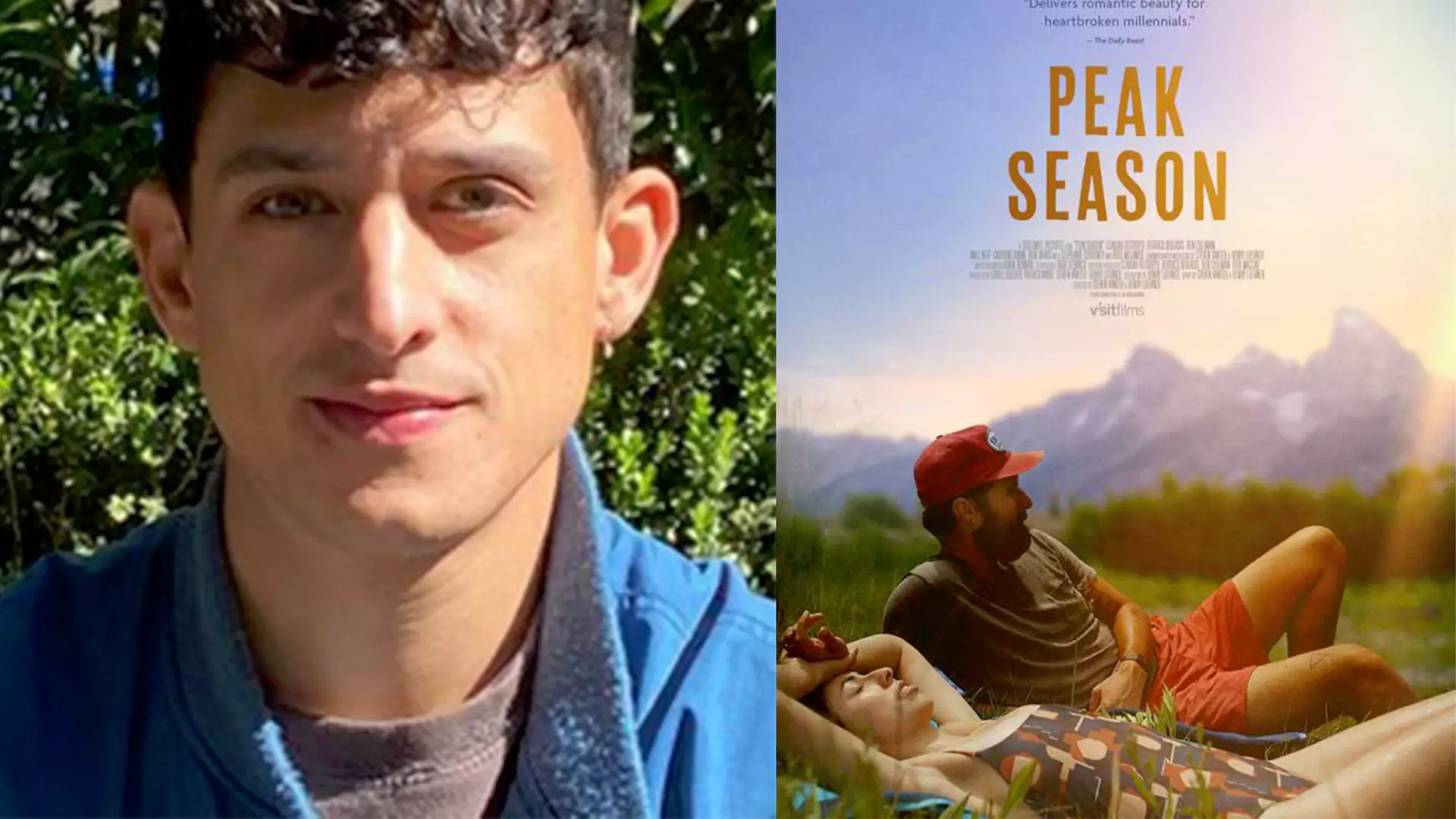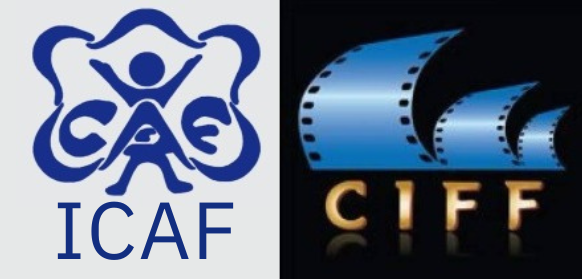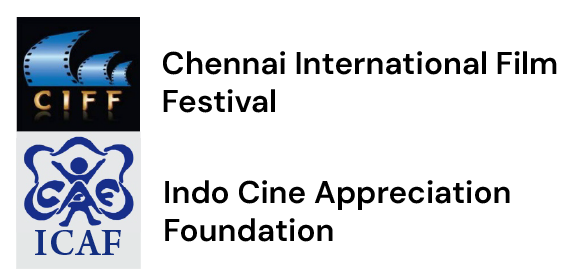
Filmmaking is a difficult business, so a little bit of encouragement goes a long way: Dir. Steven
Director Steven Kanter of ‘PEAK SEASON’ (Instagram: @stevenkanter) tells Ms. Divya Jay of Team CIFF (Facebook: @djwritings) how by middle school, he knew he either wanted to make movies or be in a rock band! He says he had a brilliant video production teacher who encouraged him to apply to film schools. Read on to know his awesome journey.
What inspired you to become a filmmaker?
I grew up near Detroit and benefitted from having a close group of creative, weird friends. As kids, we’d make little short films and sketches, often recreating scenes from the films we loved. I decided to apply to film school and attended Chapman University in Southern California. There, I received a formal education in film production and worked as a development intern at a number of studios and production companies in Los Angeles. I met Henry (Co-Director of ‘PEAK SEASON’) while working as a producer at Buzzfeed, where we learned how to put together short-form content with no budget and tiny crews. It was this experience that enabled us to make our first feature, THE END OF US.
Your favourite filmmakers?
I have a particular love of character-driven, comedic and humanist films. These include the works of filmmakers like Richard Linklater (Before Sunrise), Paul Thomas Anderson (Phantom Thread) and Noah Baumbach (Marriage Story). I also enjoy fresh takes on genre films, like the Safdie Brother’s crime drama ‘Uncut Gems’ and Patrick Brice’s horror-comedy, ‘Creep’.
What makes you both like those filmmakers so much?
These filmmakers stand out to me in large part because of their prowess as writer-directors, resulting in stories that feel especially potent and well-realized. Also, despite these directors working in different genres, there is always a strong sense of humour in their works – something I look to incorporate in my films.
Would you try your hand at other roles than direction?
I also love to shoot and edit. I am lucky to have a talented group of filmmaker friends in LA who are constantly making things. So, I have plenty of opportunities to lend a hand on their sets as a cinematographer. But my real passion is writing/directing.
In a movie can the writer and director be 2 different people or should they always be the same person?
There are pros and cons to both approaches. Of course, the writer may have a specific vision for how the story should be executed. Singularity of vision can be hugely beneficial to some films. But then again, there are times when a director with a fresh perspective can elevate a script far beyond what’s on the page. There’s no one right way to do things.
Would you direct a movie written by someone else?
I really enjoy the process of writing my films but if I came across a script that spoke to my sensibilities and felt like a great fit for me, I’d absolutely pursue developing it further as a project to direct.
Would you write a movie which would have a different director?
I am definitely open to the possibility. But so far, I’ve functioned as an auteur duo (Steven and I) in which we always direct what we write. It would be hard to surrender directorial control of a script to someone else.
How has the journey of filmmaking been till now?
By middle school, I knew I either wanted to make movies or be in a rock band. In high school, I had a brilliant video production teacher who helped encourage me to apply to film schools. At school, I gained a deeper understanding and appreciation of the types of films and filmmakers. I responded to most and had the opportunity to establish my life on the other side of the country. Given the era that I grew up, I’ve always shot and edited my own work, which has influenced my career greatly. Both as a freelance video director for brands and as a video producer at digital media companies like BuzzFeed, I’ve relied on these skill sets to work fast, cheaply and with a small group of close collaborators. This has proven to be very helpful in the world of independent film. Plus, technology and equipment has become more readily available, creating even more opportunities to tell stories.
Give us a background about your formal education.
Having attended film school, I would say that the education was helpful in meeting likeminded young filmmakers and getting exposed to the industry. However, I believe that film school, like any education, is highly dependent on the individual and what they hope to learn or gain from it. With the industry changing quite rapidly in the last decade, I certainly believe that nothing beats real-world experience. Having the opportunity to work on real sets and for new media companies gave me more practical and relevant experience that I draw heavily from today.
How did you develop interest in world cinema?
I was fortunate to get some exposure to world cinema in high school in my TV/Video class. My teacher introduced us to Fellini and Kurosawa, whose works made a great impact on me. In college, I continued my studies of world cinema, learning about Italian neorealism and the French New Wave. Today, I love seeking out foreign films through subscription services like Criterion and MUBI – and a large portion of my favorite films were made outside the US.
Support from friends and family necessary to become a filmmaker?
I am very lucky to have family and friends who support me in pursuing this insane career path. I have some artist friends who aren’t so lucky – maybe their family wants something more stable and traditional for them. This business is extremely difficult. So, any little bit of encouragement goes a long way.
What’s the difference you see between making a short film and a feature film?
In terms of production and editing, both approaches are similar. But from a writing standpoint, I think there’s a notable difference between shorts and features. While a feature film affords time to explore character arcs and secondary characters, I believe that shorts often require a much more distilled and brief exploration of a singular moment in time and an individual character. It can be tempting to develop a short film as if it were a feature, but I think it better to view them as two distinct types of stories, each with their own needs and considerations.
Tell us about the cinema scene in the US.
We live on the eastside of Los Angeles, which must have more filmmakers per capita than just about anywhere in the world. On any given day you’re bound to see amateur filmmakers shooting on the sidewalk or screenwriters penning scripts in a coffee shop. Being surrounded by fellow creative people is inspiring and overwhelming at the same time – it depends on whether you see them as collaborators or competitors. With such a high concentration of filmmakers in one place, you see the same kinds of stories retold again and again. So, it’s refreshing to see work from filmmakers based elsewhere in the country and the world.
Would you try making films in different genres?
Even though my first two feature films have been grounded romantic comedies, I also write in many other genres. I hope to make a horror film as my next project.
If you could go back in time and become a popular filmmaker from the past, which filmmaker would you be?
For me, the career of Billy Wilder is an enviable one. Not only was he prolific in his films, but he explored an incredible range of genres and worked with some of the most legendary actors of all time.
Who are your favourite Indian filmmakers?
Mira Nair is one of my favourite Indian filmmakers. Monsoon Wedding has a beautiful realism to it – the performances are so grounded that the film almost feels like a documentary. It’s a quality that I try to capture in my own work.
How different are Indian movies from movies you make?
The scale and design of Indian movies I’ve seen is definitely at a different level than the films I make. So far, my films have been smaller and more realistic in their visual approach. That being said, I would absolutely love the opportunity to make a film with the incredible stylization, energy and production design I’ve seen in Indian cinema!
Movies from which country motivated you during your filmmaking?
It’s difficult to pinpoint one country or language as the most impactful on me as a filmmaker. Obviously, I’ve probably had the most exposure to English-speaking productions, but I believe that a great film, being a visual medium, transcends language and culture. The universality of a great human story, no matter the background or nation, is what inspires and drives us to tell stories ourselves.
How do you feel about your film participating in the 21st Chennai International Film Festival?
I am delighted and honoured to participate in the 21st Chennai International Film Festival! Even though ‘Peak Season’ is set in the Teton Range of Wyoming, the story explores universal themes that will resonate with a global audience. It’s a humanistic story about the conflict between love and professional responsibility, personal desires and family expectations.





